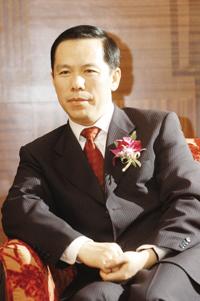China Eastern Airlines, one of China's three major carriers, hopes to start the work of introducing strategic investors within this year, China Business News reported Friday, citing the carrier's chairman, Liu Shaoyong.
 Liu Shaoyong, Chairman of China Eastern Airlines [File photo]
Liu Shaoyong, Chairman of China Eastern Airlines [File photo]Mr. Liu told the newspaper that big-name airlines with experience in management will be China Eastern's first choice, but also said they welcome financial investors.
"[Our choices are] not limited to airlines within the SkyTeam alliance," Liu was quoted as saying.China Eastern signed a memorandum of understanding (MOU) with SkyTeam in April, and will become a formal member of the alliance before mid-2011.
Liu told the newspaper China Eastern hopes the work of seeking strategic investors can begin in 2010.
Notably, a senior official also suggested the state-owned carrier might introduce investors earlier this year.
"...We expect China Eastern to further enhance its international competitiveness through, for example, strategic cooperation," said Meng Jianmin, deputy chief of the State-owned Assets Supervision and Administration Commission, according to a China Daily report in February.
Market observers say China Eastern may still choose Singapore Airlines as its strategic investor, despite an abortive cooperation between the two carriers in 2008, said the newspaper.
China Eastern's financial status is better now compared to two and a half years ago, when it sought the deal with Singapore Airlines.
Mr. Liu said the carrier's current debt-to-asset ratio is about 95%, and is still too high. He expressed the hope to lower it to a "reasonable level" this year, according to China Business News.
Singapore Airlines and its majority owner, Temasek Holdings, agreed in November 2007 to buy a 24 percent stake in China Eastern for $920 million, but the deal was rejected by China Eastern's minority shareholders because the price was too low.
China Eastern completed its merger with Shanghai Airlines earlier this year. It reported a net profit of 540 million yuan ($79 million) in 2009, jumping 103.88% year-on-year from a 13.9-billion-yuan loss in 2008.





